Stepping inside the glass doors of Cúrate, it is clear the focus here is community. The walls are a warm, welcoming salmon color, and a lush green living wall is hung near the entrance. The open kitchen encourages guests to observe as bustling cooks prepare their meal. You can even sit at the bar for a close-up view. The menu lists over 40 different small plates in Spanish, with phrases like “Continuamos…” (“let’s continue…”) connecting each section, and Spanish scenes by local artist Gabriel Shaffer decorating the background. A majority of the art and fixtures here are made locally, even the earthenware which was crafted by Asheville ceramic group East Fork Pottery. Most of the ingredients are sourced from local farms, giving the Spanish cuisine a distinct Southern American flair. And there are roughly 80 Spanish wines on the list, half of which are offered by the glass, plus a variety of sherry, cider and vermouth from which to choose.
It only took one visit to Asheville for Chef Katie Button to decide this was where she needed to be. “It’s a small community with this amazing, vibrant, walkable downtown,” says Button. “It had a feeling of growth when we came through it, and it felt like it was full of a bunch of interesting people creating their own businesses because they just really wanted to live there.” Feeling the magnetism of the mountains, breweries, restaurants and art spaces, Button made her move, along with husband Felix Meana. “Felix actually moved there sight unseen! He had faith in me,” she tells me. The pair knew they would open a restaurant, and decided to give the city something it needed: an authentic Spanish tapas bar.
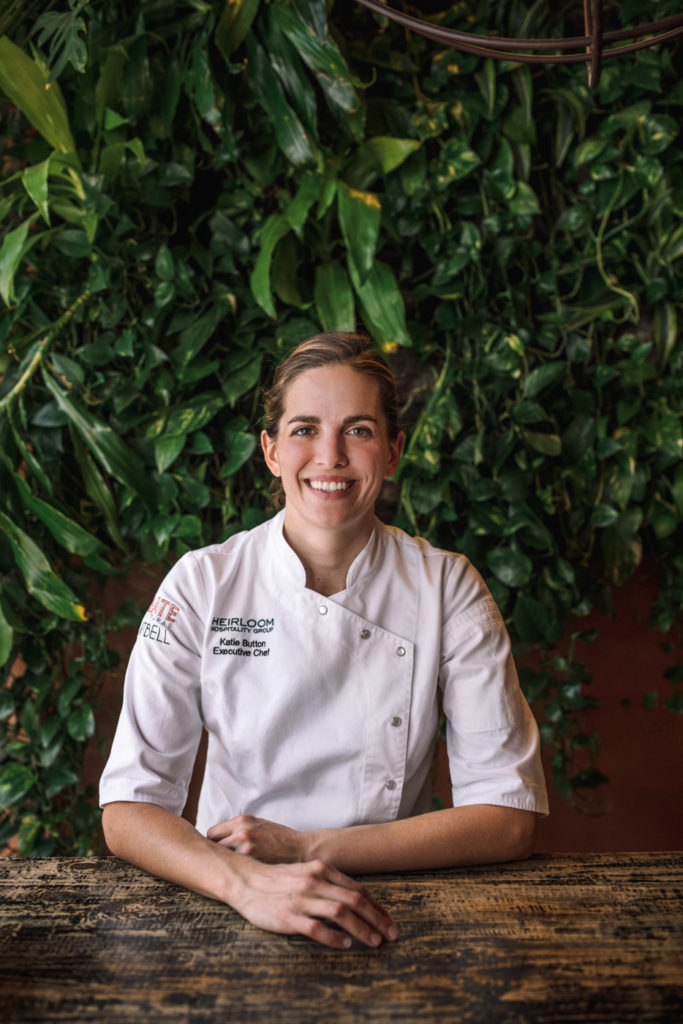
With Cúrate’s success and Button’s steadfast ambition, she, Meana and her parents, Ted and Elizabeth Button, opened a second store just a few blocks away. Nightbell began as a molecular gastronomy cocktail bar with a secretive, speakeasy vibe; it later expanded to offer a menu of small plates inspired by traditional Appalachian cuisine with a modern flair—another quick hit.
Cúrate is currently being expanded and is set to debut in March. “We keep growing because we’re excited about it, we’re never quite fulfilled, and we’re always thinking about how we can improve—but also because we’re able to continually create opportunities for the people who work for us,” says Button. “That’s really important to me. Our priorities are focused on this family/business environment.”
And although she’s felt some pressure to bring Cúrate to another city, she is fully invested in Asheville. “I love being able to be where both of our restaurants are. It takes me 15 minutes to walk between the two of them,” she says. “Our hope is that you feel we’re here and very involved. We’re here to stay.”
Button has her hands in several projects, including releasing a cookbook in 2016. And although these projects have enabled her to conceive the best of her restaurants, to Button, true progress is defined by sustainability, responsible employment, and local and regional philanthropy. When creating both concepts, Button and her family were mindful about ethically sourcing everything from food product to kitchen equipment, recycling and composting food waste—efforts that earned Cúrate a Green Restaurant certification.
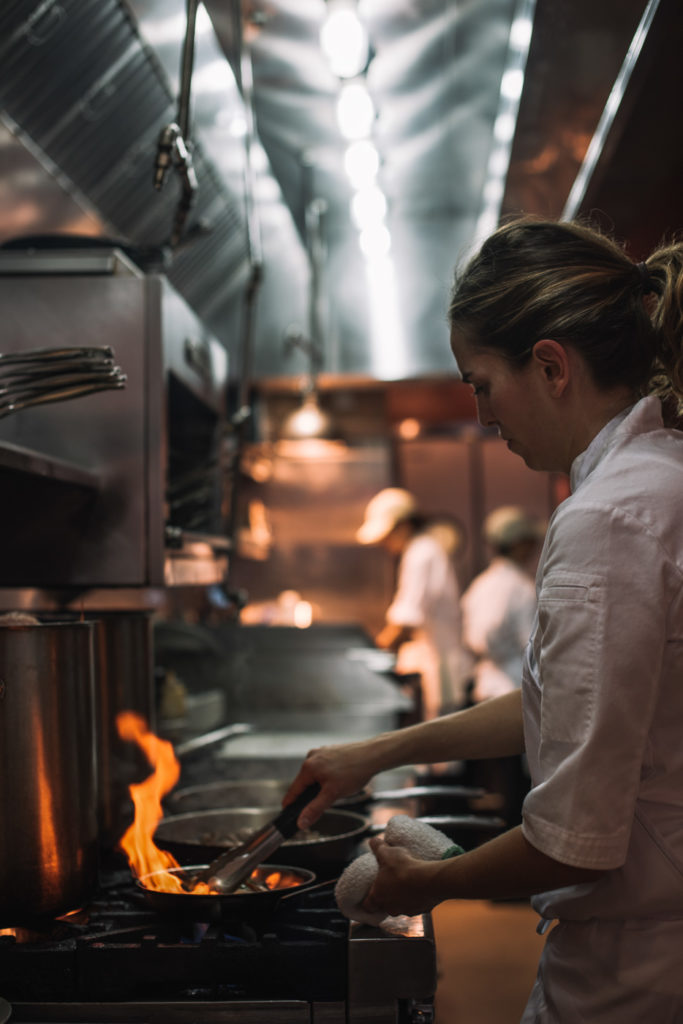
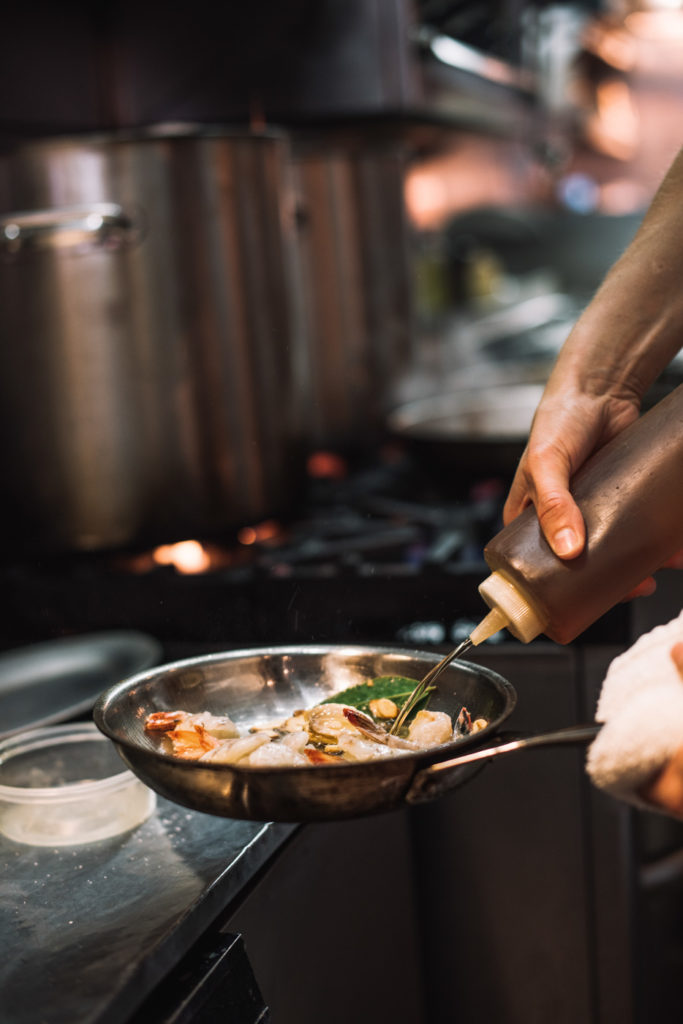
True to her philosophy and ambition, Button knows there are always improvements to be made. Last summer, she attended the James Beard Foundation’s Chef Bootcamp for Policy and Change in Montana. “We discussed the impact of food waste on the environment, resources and people. We also discussed the lack of awareness or focus on these issues,” she says. “Forty percent of the food produced in this country is thrown in the garbage and the majority of that is happening at a consumer level, in homes, restaurants and other institutions with food service.” The chefs were challenged to analyze items headed to compost and find new uses for them. “It made me realize I needed to focus harder on what is ending up in the garbage at both of our restaurants and in my home, and that I need to keep talking about it so that more people are aware of this issue,” says Button.
Many items that might be otherwise discarded find new life in Button’s kitchen. For example, tomato skins from pan con tomate are used to create stocks. And there’s the added benefit of owning neighboring restaurants; Cúrate’s trout belly scraps become Nightbell’s trout rillette. Not only does this help reduce food cost, but the goal is also to reduce negative environmental impact, and to encourage the rest of us to follow suit.
The same sense of ethical business practices is applied to employee care. “We’re really focused on sustainability for our employees as well. We pay them all a living wage, we offer health insurance and paid time off—which for independent restaurants is challenging,” she says. To Button, being Living Wage Certified is just as important as ethical food sourcing.
Beyond her own doors, Button is dedicated to serving the local and regional community. “We’re involved in a lot of local charities,” she says. “But recently we’ve been focusing on a couple of areas because we know that we can make the most difference if we’re able to focus our efforts.” Every year, the Cúrate staff volunteers at The Haywood Street Congregation’s Downtown Welcome Table. Unlike many soup kitchens, there are no limitations to who can benefit from the Welcome Table. “It’s open to everybody,” says Button. “And it’s focused on this shared experience. Instead of walking down a cafeteria line, and sitting, and leaving, we serve them. Everyone sits at a round table together with a bunch of people they don’t know, all from different backgrounds. They can talk. The food is passed family-style and you share the meal together.”
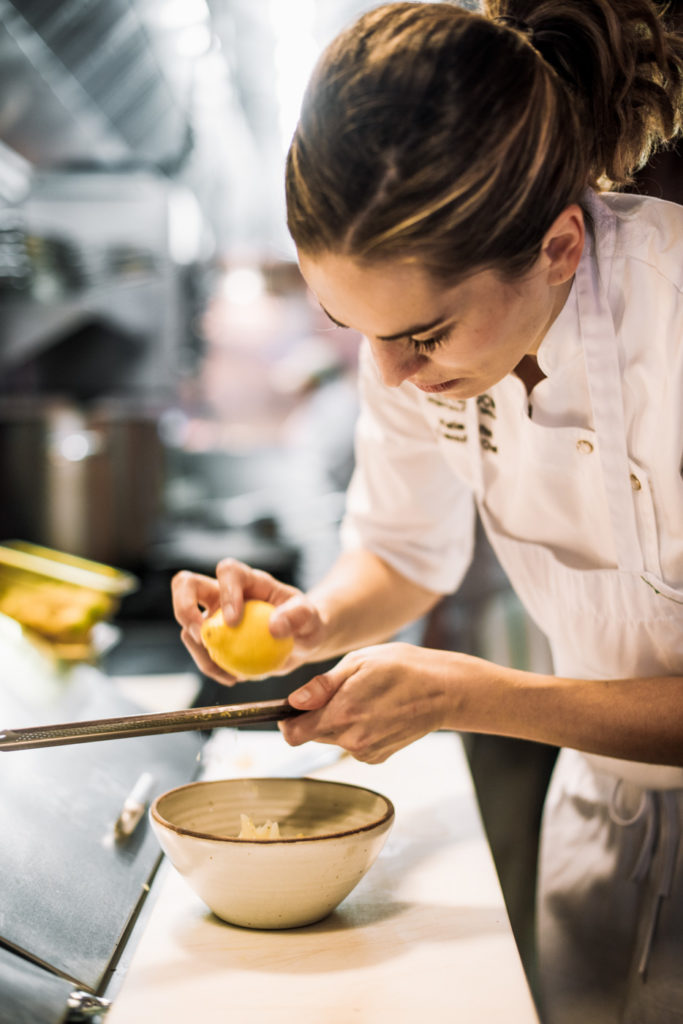
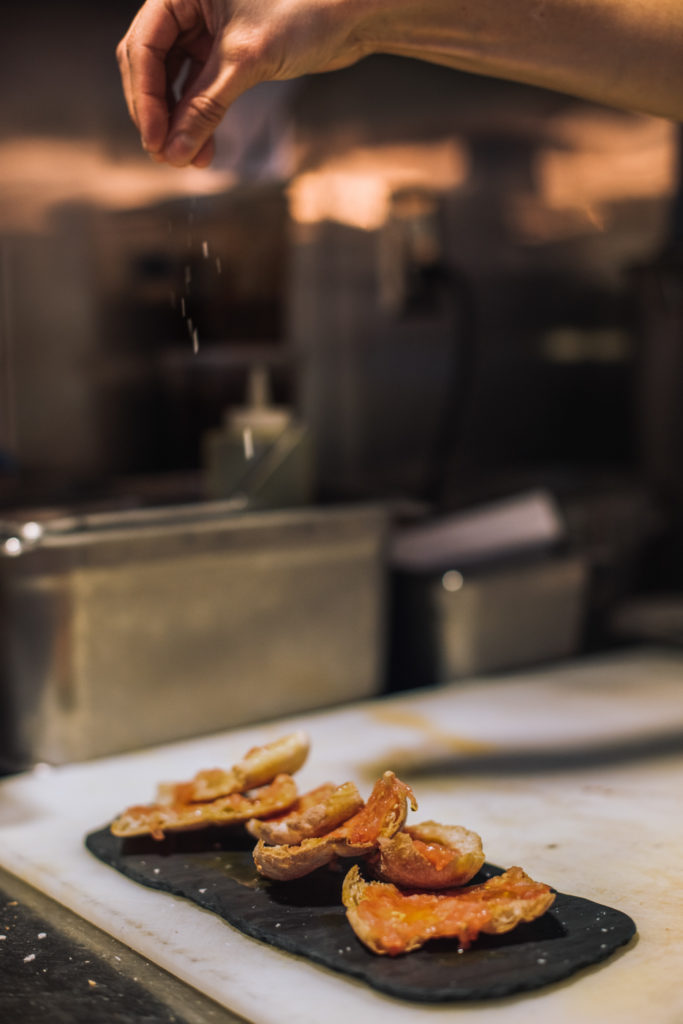
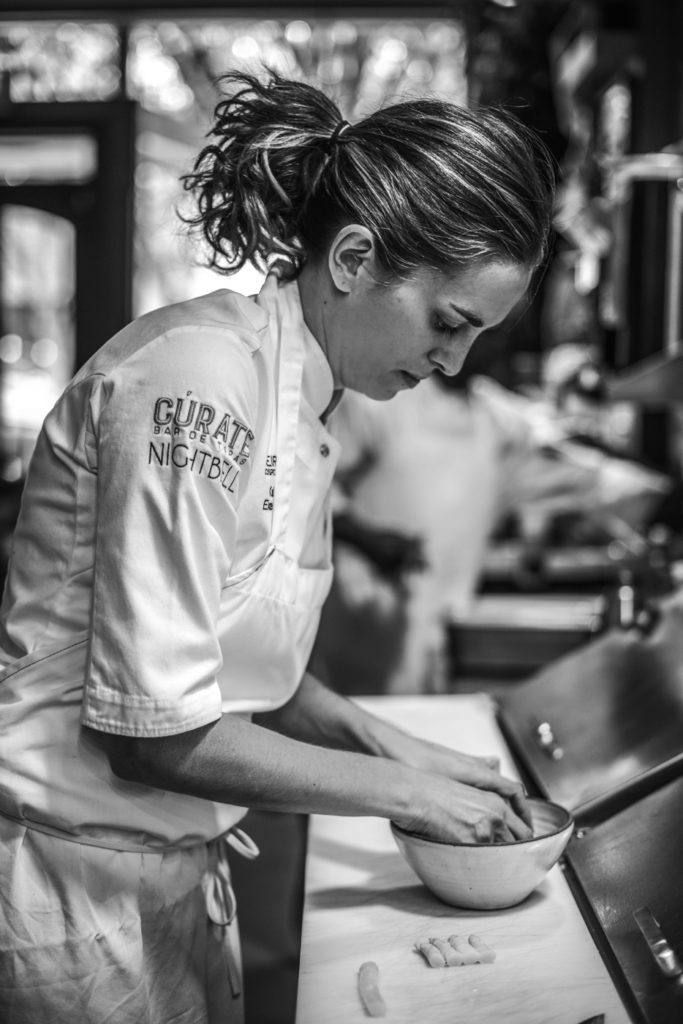
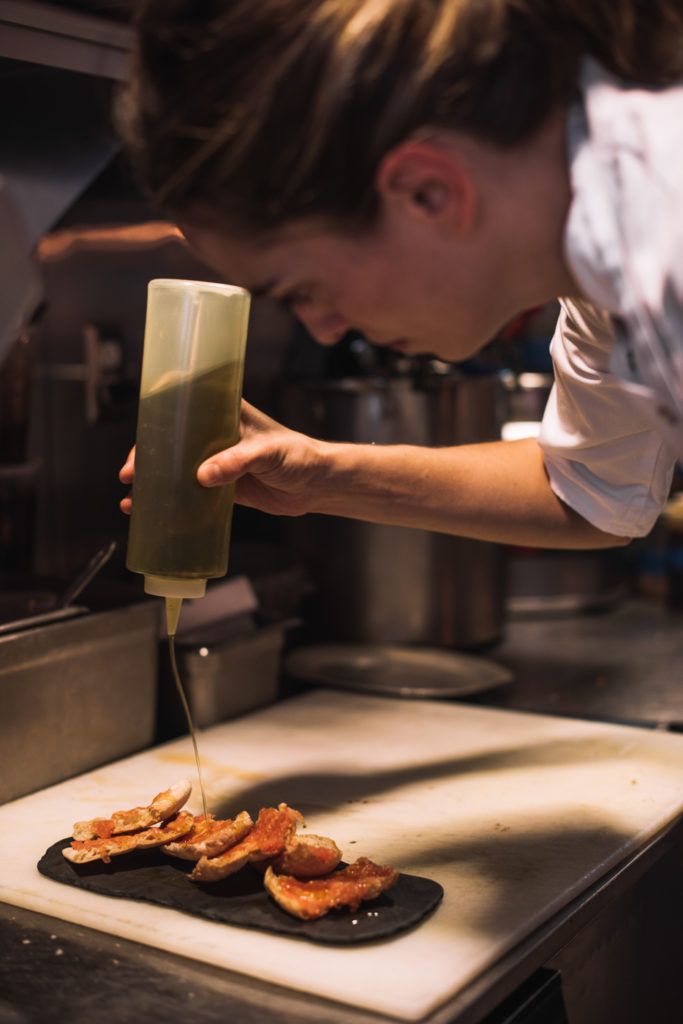
Button’s staff both prepares and serves food when they volunteer, and the program is growing. In 2016, they served almost 500 people in a single day. The staff is also frequently involved with Manna Food Bank, which provides food to those in need in the western region of North Carolina. Last October, Cúrate partnered up with the Southern Foodways Alliance, participating in a week-long Fish Stew Rescue along with other Carolina restaurants. All profits were donated to the victims of Hurricane Matthew in Eastern North Carolina.
And of course, Cúrate’s expansion is almost complete. The building is being restored to its original plan, connecting the current dining room with the space next door. As one open space, it keeps true to the community vibe with an open kitchen, complete with brand new Spanish appliances, an extended hot line, and a bar where sherry, cider and vermouth will be available on draft. Meana enjoys educating people about these spirits, which often go underappreciated in the United States.
Last October, Button released her first cookbook titled Cúrate: Authentic Spanish Food from an American Kitchen. “I’d say about 60 percent of the recipes are from Cúrate, but written for home. The portion size is reworked, where at the restaurant the dish serves one person, at home it serves four to six people,” Button explains. “It’s not a tapas book; it’s meant for people to sit down and have dinner.”
There are several new dishes Button created just for the book. “It allowed me to be creative, and it’s even helping us come up with new dishes for our expansion,” she says. The book ranges from very simple recipes—such as stuffed piquillo peppers, which involve ingredients typically stocked in any home pantry, and take just a few minutes of assembling—to more intensive instructions on blood sausage with rice for the project-minded home chef. “There’s something for everyone, even if you don’t cook that much,” Button says.
Button herself makes time several days a week to cook for her family after being in the kitchen all day. “I have a young daughter at home. Prepping dinner has changed significantly for me. I really try to do family dinners in the evening,” she says. And she wanted a majority of the book to be practical for everyday life.
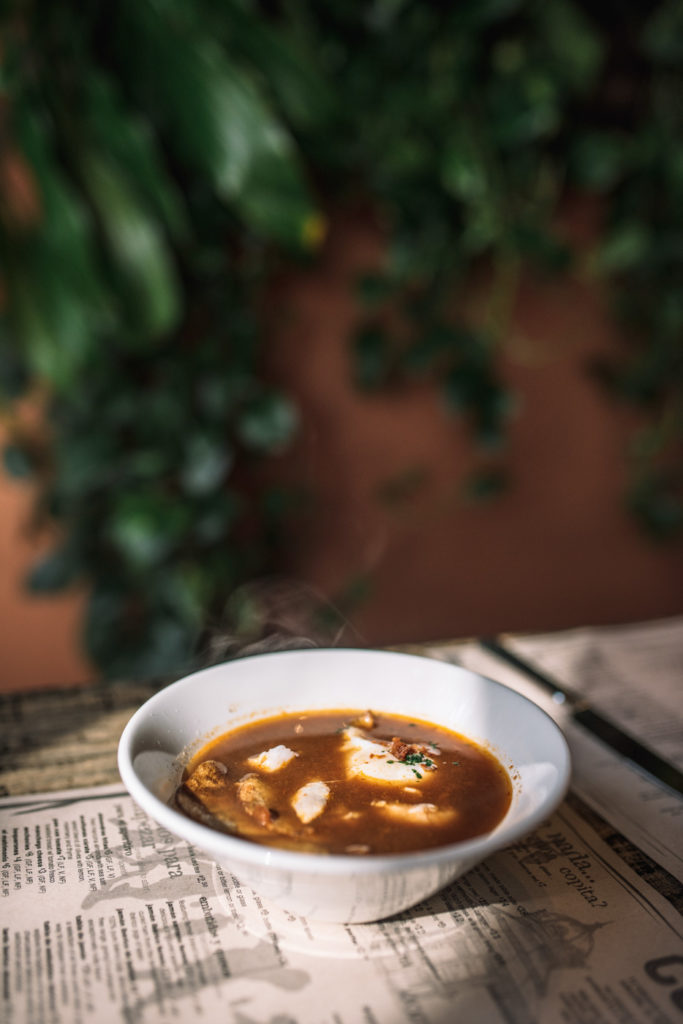
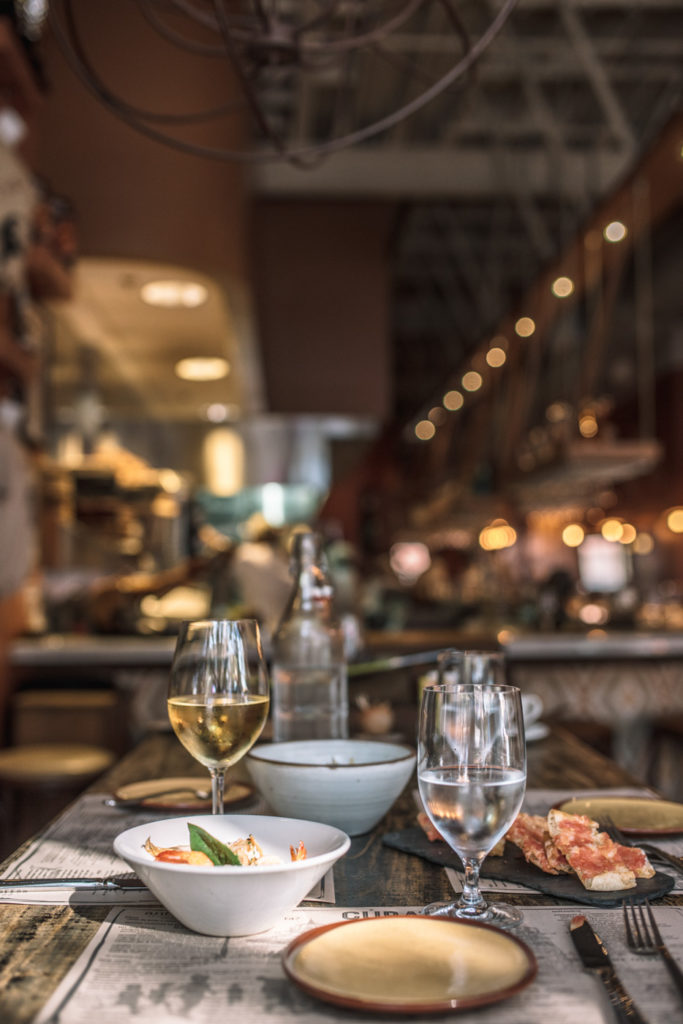
Since opening the doors of her first restaurant in 2011, Button has captured the attention of restaurateurs and magazines all over the United States. Her background is fascinating: a biomedical engineering major exchanging her path to a PhD for a career in the culinary world, beginning in food service and eventually moving into the kitchen, all for the love of food and family. She worked at several highly respected restaurants, including three-star Michelin awarded elBulli in Spain, which shaped much of how she runs her businesses today. During her time in Spain, Button observed the way people tended to dine altogether, ordering a few small plates. Everyone shares, giving a special intimacy and connection to the meal. “It’s a fun way to eat because you end up talking about the food more, and [you enjoy] the whole experience, versus just ordering an entree and focusing in on the thing you ordered,” she says. “I love that way of dining.” She knew that was how she would design her own restaurant, and along with style, her experience at elBulli taught her to pay attention to minute details and the overall organizational skills it took to run such an esteemed restaurant, one that reinvented itself each year.
“Working in restaurants is it for me. It’s my life,” she says. In just a few years, she has proven to be a driving force not only in Asheville’s culinary scene, but in its community as well. Success is a tool for making a difference at home. But at the core is a simple and noble philosophy: everyone deserves a good meal.

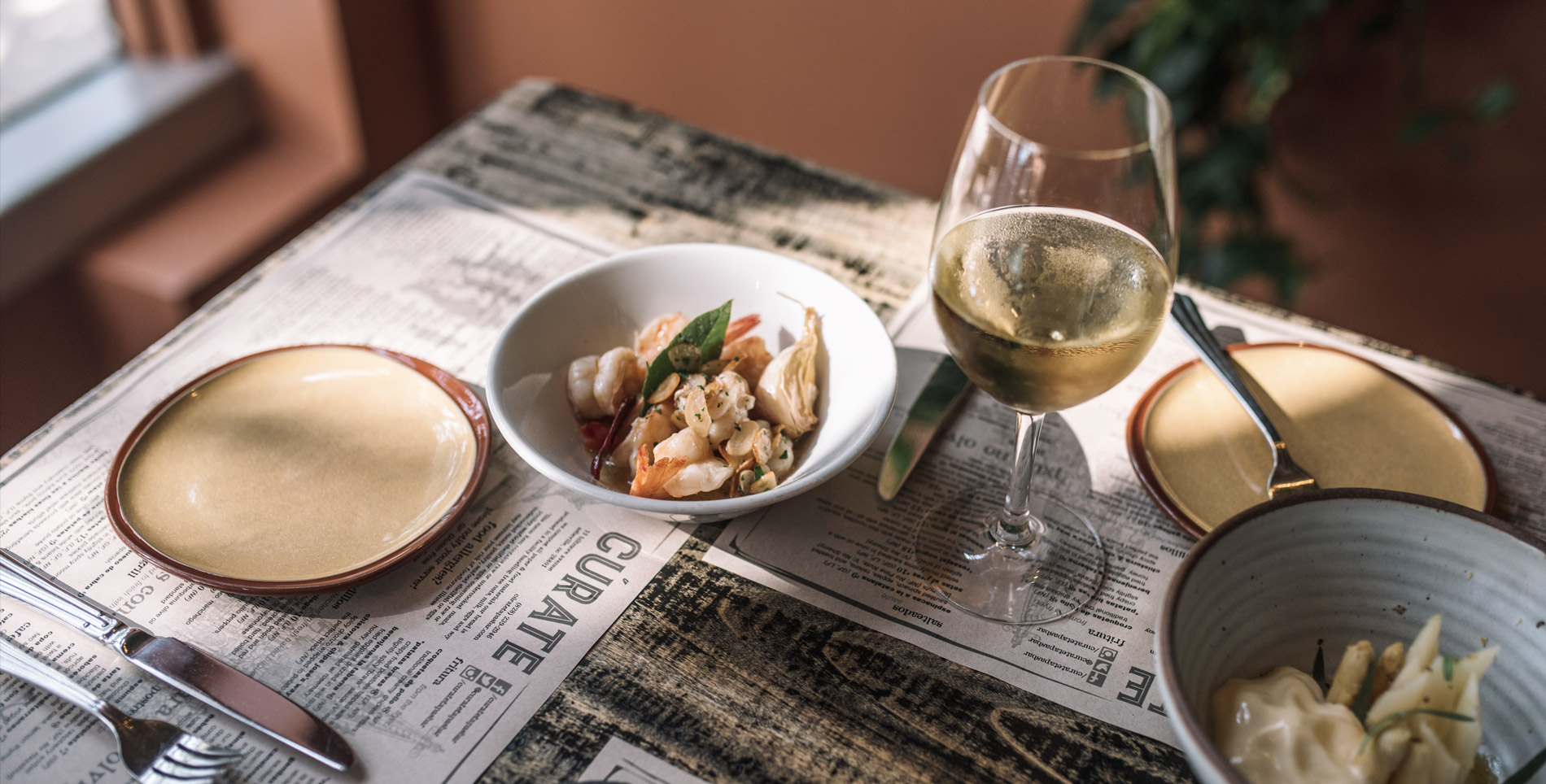

Our comments section is for members only.
Join today to gain exclusive access.